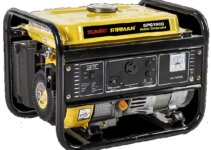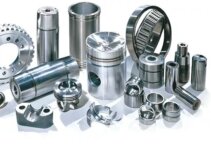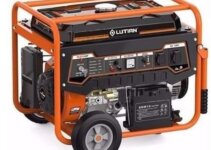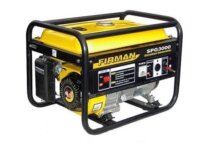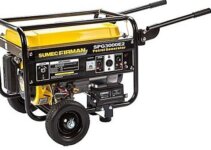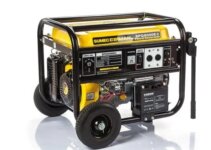One of the biggest challenges in Nigeria today is the erratic power supply. Because of this issue, most homes, businesses, and religious organizations need to find alternative means of power supply. The most popular alternative means of power supply in Nigeria are generators.
There are so many products on the market in this category. One such product is Kemage Generators. While this brand isn’t exactly popular, it is fast gaining recognition. It owes its rapid popularity to the high quality of its products and their affordability.
One question that is common to anyone who hears about this brand for the first time is, “How much does a Kemage generator cost?” This post will answer this question along with a few others that you may have in your mind.
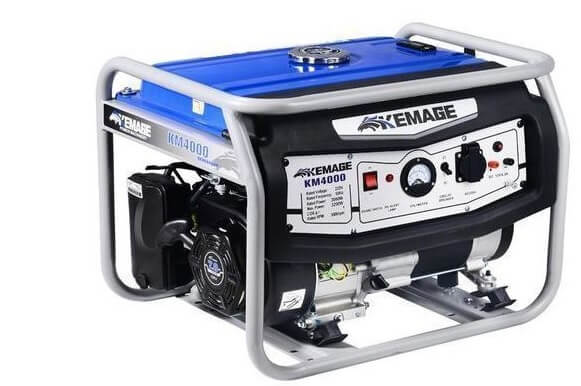
Kemage Generator Prices in Nigeria
Kemage Generators are manufactured in South Korea and exported to so many countries including Nigeria. These generators are made with premium materials to ensure their durability. Asides from being so sturdy and durable, Kemage generators are highly affordable, and you can find them at almost any electronics store within the country.
How much do you need to purchase a Kemage generator? There is a wide variety of generators from this company. We have taken some time to study the market on your behalf to find out the current prices of Kemage generators. Check out the list below to see these prices:
- KEMAGE 12kva Petrol Generator With Remote Control 100% Copper-KM11000E2: From ₦658,000
- KEMAGE 3.2kva KM4000E2 Generator H Series 100% Copper Key Starter: From ₦400,000
- KEMAGE 3.5KVA KAMAGE GENERATOR KM4000E2 100% Copper Key Starter: From ₦420,000
- KEMAGE 4.5KVA Kemage Manual Starter Power Generator- KM4000: From ₦450,000
- KEMAGE 4.5kva Key Starter Power Generator- 100% Copper: From ₦450,000
- KEMAGE 4.5Kva Manual Starter Generator- 100% Copper KM4000: From ₦450,000
- KEMAGE 4000E2 4.5kva Key Starter Power Generator- 100% Copper: From ₦450,000
- KEMAGE 5.5KVA KAMAGE GENERATOR KM4000E2 100% Copper Key Starter: From ₦480,000
- KEMAGE GENERATOR 5.5kva Key Start- KM-5800E2: From ₦480,000
- KEMAGE Generator 10.5kva Petrol Engine KM11000: From ₦650,000
- KEMAGE Generator With Remote Control 8.5kva Petrol Engine: From ₦630,000
- KEMAGE Key Starter Generator 8.5kva Petrol Engine: From ₦630,000
- KEMAGE Manual Starter Power Generator- KM4000: From ₦312,000
- KEMAGE Remote Control Generator 10.5kva Petrol Engine: From ₦650,000
- KEMAGE REMOTE CONTROL Generator 10.5kva Petrol Engine: From ₦650,000
- KEMAGE Remote Control 10.5kva Petrol Engine: From ₦650,000
PRICES LAST UPDATED: MARCH 29, 2024.
Note that these prices are subject to change due to frequent variations in the Naira-Dollar exchange rate. Several factors also affect these prices including the vendor you patronize, the location of purchase, and the power capacity of the generator.
Factors to Consider When Buying a Generator in Nigeria
Generators have become quite common in this part of the world because of the power supply challenge we are facing. People often step out and purchase a generator when they need one without considering any specific factors. This is why we often end up with bad purchases and have to go back within a short time to buy new generators.
The market is saturated with a wide array of products, popular and unpopular. Because of this, you need to watch out for certain factors before shelling out money to purchase a new generator. This section will show you a few important factors to consider before purchasing a generator in Nigeria.
Power needs
How much power do you need to run your appliances in your home, office, or business establishment? Understanding your power needs helps you figure out the maximum output and power rating of the generator you should purchase.
Maximum output is the highest amount of watts that a generator can produce at a go. Rated output, on the other hand, is the number of watts that a generator can produce continually. The easiest way to determine your power needs in this regard is to calculate the combined wattage of every piece of equipment you will load on the generator. You need to know how much power each equipment needs at start-up and for running.
After you have come up with your final answers, we suggest that you add an extra 10% buffer. This buffer acts as a safety precaution. You can now look for a generator that can satisfy your power needs based on the results of your final calculation.
Quietness
We often get disoriented because of the noise from generators. While most generators on the market today make so much noise, some are noisier than others. Aside from these, we have a few noiseless generators on the market today as well.
You need to figure out how much noise you can make or are allowed to make with your generators. There are a few residential and commercial areas where there are strict restrictions regarding noise control. If your home or business falls under such districts, and you need to purchase a generator, you need one that doesn’t make so much noise.
The industry standard for a generator’s sound level is 70 dB(A) at 23 feet. Many of the generators on the market today satisfy this condition. However, your location will determine if you can work with this standard or if you need a quieter generator.
Fuel consumption
A very important factor you should consider when choosing generators is fuel consumption. Some generator brands and products consume more fuel than others. If you will be running your generator for very long periods, then you need to purchase a highly fuel-efficient generator. This way, you won’t be spending excessively on fuel consumption.
Purchase and maintenance costs
For most people, this is the most important factor of all. How much are you willing and able to pay for the purchase of a generator? What is the cost of maintenance of the generator and is it sustainable for your pocket?
Some generators are quite affordable when buying them, but the cost of maintenance is pretty high. You should find a generator that creates a healthy balance between purchase and maintenance costs.
